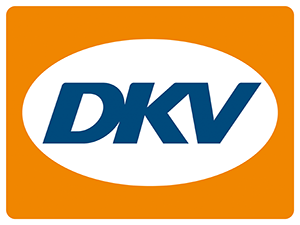Sustainable Fleets

Time is running out. According to United Nations, transportation stands as the second-largest industrial emitter of greenhouse gases in most of the countries, making a change in mobility an undeniable necessity. Contrary to what many decision-makers believe, the energy transition is not just a matter of sustainability —it represents a significant business opportunity and a strategic differentiator that only the early adopters will turn into a competitive advantage.
The sales figures for electric vehicles clearly illustrate the change: in 2022, 10 million electric cars were sold worldwide; by 2023, this figure had risen to 14 million - an increase of 35%. And the trend is continuing. Nevertheless, one segment is still lagging behind expectations: light electric commercial vehicles. These will still only make up a small part of total electromobility in 2024.
One primary reason for this lag compared to passenger cars is that commercial vehicles tend to be heavier and cover longer distances, which puts extra pressure on battery range. Infrastructure costs for fleets are also higher, and there's a psychological barrier to overcome, not to mention a clear element of uncertainty.
Despite these challenges, decarbonization brings undeniable advantages, including access to vehicle renewal programs, more cost-effective refueling, parking benefits, access to special lanes, and not to forget: an enhanced company image. Commitment to new mobility serves as a highly attractive communication and positioning tool for current and future partners.
There are future opportunities for fleet managers. A survey by AddSecure shows that four out of five (83%) European transport companies are willing to shift to electric vehicles or alternative fuels in their fleet, or both if conditions allow. One in four (26%) transport companies consider sustainability to be the primary factor in wanting to transition to a more climate-friendly fleet. More than one in five (23%) said that demand from customers is the main driver for the transition.
An Emerging and Promising Mobility
Important milestones have been achieved in DKV Mobility’s commitment to drive an efficient and sustainable future of mobility: for instance, the supply network includes ~23,000 service stations for alternative fuels, such as LNG, CNG, HVO or hydrogen. With currently ~853,000 EV charge points, DKV Mobility also offer access to one of the largest charging networks for electric vehicles in Europe.
The concept of sustainable fleets has emerged as a proactive approach to not only reduce the environmental impact of operations but also enhance efficiency and profitability. So, it's not merely about promoting the use of alternative fuels for environmental reasons in electric commercial fleets. It goes beyond that, and technology plays a pivotal role in this regard.
Digitization and Sustainability Go Hand in Hand
DKV Mobility understands that data analysis is essential for fleet managers to monitor vehicle performance and optimize routes. This data-driven approach helps identify inefficiencies and make informed decisions to enhance transportation operations. Hence, digitization translates into sustainability as well. Leaning on technology to minimize travel distances, reduce downtime, and enhance fuel efficiency allows us to embrace a more environmentally friendly and efficient modus operandi.
Ultimately, sustainable fleets are not solely a technical or economic matter; they signify our responsibility to the planet and ourselves. They declare our willingness to evolve, embrace new ways of mobility, and care for the world we share. Every time we choose sustainability, we create a small yet impactful ripple effect that resonates throughout society.
